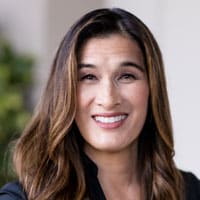
My experience as a financial advisor has shown me that charitable giving can have a positive impact beyond the tax benefits. There’s a deeper, more personal dimension to philanthropy: It changes lives not just for those who receive the funds but also for my clients and their families.
For instance, one of my clients started giving small amounts to a local children’s charity. But her commitment grew as she saw the difference her money was making. This included better books for the kids and nicer places for them to learn. She even has her grandkids involved in some charity events. It’s become a defining piece of her family’s identity.
Another client whose sister has a developmental disability donates to groups that support disabled adults living independently. His contributions have helped with job training and community activities. He’s shared with me how his giving goes beyond monetary value; it symbolizes a connection to a cause close to his heart.
A More Holistic Approach
My clients are far from alone in their generosity. According to the National Philanthropic Trust, Americans donated $499.33 billion in 2022. Individuals were the biggest contributors, giving $319.04 billion and representing 64% of all donations. Other sources of giving included foundations, corporations and bequests. Religious organizations received most of the charitable dollars, followed by educational institutions and human services. Grantmaking foundations were also major beneficiaries, while the health sector received the least allocation.
Discussions with clients about charitable giving have evolved over the years, shifting from organizational support to a more holistic approach. This change reflects a broader trend among donors to align their charitable giving with their personal values and long-term goals.
5 Motivations for Giving
Here are a a handful of reasons why my clients choose to give to charity:
1. It’s a family tradition
Adults whose parents donated to charity are more likely to do the same. Despite COVID-19 and its aftermath, about 86% of affluent families maintained their charitable contributions. This rings true for one of my clients whose family has a long history of supporting local education initiatives. He views it as an essential part of their family legacy. During the pandemic, they continued their giving despite the challenges.
2. It strengthens personal values
An overwhelming 96% of donors feel morally obligated to use their resources to help others. This sense of duty often comes from deep-seated principles and convictions. A client of mine once shared that giving isn’t just about helping others; it’s about living her values. She stated that it simply “feels right.” She believes in the importance of accessible medical care for all and supports healthcare charities in her community.
3. It empowers communities
Giving is a powerful means of driving change and enhancing communities. Many of my clients find it fulfilling to identify causes in their local environment to support through charitable giving. This is something I personally believe in.
I have volunteered as a SoleMate for Girls on the Run and as a coach for 261Fearless, an organization that empowers women to discover their self-worth and make confident life choices. In 2023, I ran the TCS London Marathon as a charity runner for Afghanaid because I want to increase the number of Afghan women involved in economic engagement, included in local governance and fully participating in their communities.
4. It inspires generosity in others
Giving can inspire giving. For example, participating in charity events with friends or family can open their eyes to the joy of giving. Seeing others contribute often prompts them to donate as well. This happened with a client earlier this year. Her active role in charity events inspired her kids to raise funds for environmental causes. It’s a perfect example of how giving can encourage generosity in those around you.
5. It adds meaning to life
Wealth can enhance living standards, but it can also help to build community and leave a legacy. Giving to charity provides enhanced meaning to one’s wealth. Donors get a chance to express themselves, support causes that are important in their lives, and change the world around them.
My Turning Point
On a personal note, in July 2023, I earned the CAP® designation (Chartered Advisor of Philanthropy) from The American College of Financial Services. My decision was influenced by an increasing need among clients to integrate their philanthropic intent into their financial plans. The turning point was when I realized that while my clients were adept at accumulating wealth, many were seeking guidance on how to use it meaningfully. My goal is to broaden my expertise to align clients’ financial objectives with their highest aspirations for self, family and society.
My additional education has helped me create deeper conversations about legacy, impact and the role of wealth in society. It’s not merely about guiding clients through the technical aspects of charitable giving but also about understanding and nurturing their passions and visions for change.
Bridging the Gap
What can you do as a financial advisor? Here are seven strategies to help clients bridge the gap between wealth accumulation and meaningful legacy building.
1. Help clients identify their charitable and financial goals
A financial advisor’s first step is to assist clients in identifying their charitable objectives and how these integrate with their financial goals. It requires a comprehensive review of their overall financial plan to determine how much they can comfortably contribute, including discussions about the impact on cash flow, taxes, investments, retirement and estate planning. This way, you can balance your clients’ desire to give alongside their long-term financial health.
2. Assist in researching and understanding how various charities operate
A survey by Fidelity Charitable found that 67% of donors needed to be more certain about a charity’s trustworthiness. You can help by guiding your clients in researching the effectiveness and impact of different charities. Look to resources like Charity Navigator and GuideStar to help them better understand how these organizations use their funds and feel confident and empowered in their charitable choices.
3. Advise on donating appreciated assets
Donating appreciated assets, such as stocks, is a smart method to increase the value of donations. Donating appreciated assets offers tax advantages over cash donations. Consider, too, that nearly half of donors in a Fidelity Charitable survey said they’d give more if the tax deductions were higher. Explain to clients how donating appreciated assets can enable them to avoid capital gains taxes, and introduce them to the concept of donor-advised funds as an effective vehicle for charitable giving.
4. Help clients choose the right assets to give
As a financial advisor, you can guide clients to choose the most tax-efficient assets for donation. For instance, I advised a client on donating stocks that had appreciated for more than a year to reduce capital gains taxes. I also explained the tax implications and necessary documentation for non-cash charitable contributions, such as IRS Form 8283.
You can also assist clients is with donor-advised funds. Contributing appreciated securities to a donor-advised fund offers tax benefits. Specifically, it bypasses the typical 20% capital-gains tax. Contributed assets may also help clients avoid the Medicare surtax that would apply if they sold their securities and then donated thier preceeds. the securities were sold and the proceeds were then donated. Donor-advised funds don’t have a contribution limit, allowing clients the flexibility to contribute as much as they are comfortable with while maximizing the tax efficiency of their charitable giving.
5. Strategize on non-publicly traded interests
For clients with non-publicly traded interests (such as restricted stock, S-corp or C-corp shares, cryptocurrency), and other alternative investments, encourage them to donate these assets to charity before divestiture. Discuss the benefits of the “bunching strategy” for consolidating donations and maximizing tax deductions. Bunching involves giving multiple years of giving in a single tax year, to itemize deductions, and then taking the standard deduction in off years.
6. Leverage high-income years for charitable giving
Advise clients experiencing high-income years to use charitable contributions strategically to lower their taxable income. Educate them on how donor-advised funds can be used for these contributions, allowing for tax-free growth of the funds and increased giving potential in the future.
7. Utilize qualified charitable distributions
Anyone aged 70 1/2 years or older can use qualified charitable distributions (QCDs). This is an especially good strategy if your clients hold individual retirement accounts (IRAs). Work with your clients on how QCDs can satisfy minimum distribution requirements and direct funds to charities in a tax-efficient manner.
Additional Reading: How to Support Moms Headed Back to School
Using these strategies, you can help clients align their need to give and make an impact in their communities. Financial planning is about more than just numbers; it’s about helping clients support the causes they care about in a way that makes sense for their financial future.
Marguerita (Rita) Cheng, CFP, is the chief executive officer of Blue Ocean Global Wealth. She is passionate about helping clients navigate some of life’s most difficult issues — divorce, death, career changes, caring for aging relatives — so they can feel confident and in control of their finances. Rita is a past spokesperson for the AARP Financial Freedom Campaign. She volunteers her time as a SoleMate for Girls on the Run, raising money to win scholarships for girls.







